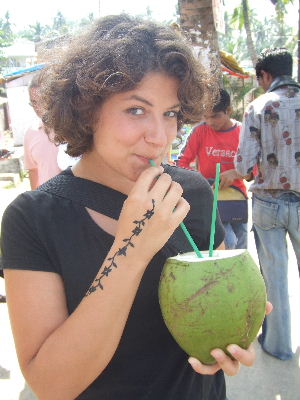chinese turkestan
duff and i thought it would be wise to give a little introduction to the travels we will attempt in the next month. we will visit a region of the world that fascinates me. it is remote, of course i am interested!! it is china, technically, but it is not. this is a land of arid salt flats, mountains, basins, grasslands, camels, the silk road, the end of the great wall, the furthest outposts of chinese civilization, minority peoples.... we get to visit central asia without leaving china. i will try and paint a little introductory picture:
we will travel out into the desert of western china. there are a number of very large provinces in this region that we will visit. we tell the students we are going to xin jiang which is apparently the size of alaska. xin means new and jiang means territories. the region is properly known as the xinjiang uigur autonomous region. the uigurs are the chinese muslim minority people. many uigurs have left xin jiang and now live in all parts of china. there are so many in wuhan (which probably helps explain why a train leaves for far western china daily). in the big cities, uigurs open noodle stands and bbq places. they have a trilling call to draw attention to their roadside stands. there are 4 or 5 different guys who set up by the south gate of our campus. i am excited to go to xin jiang for the food. i love the muslim noodles here, they are hand pulled and dropped into a soup pot. my favorite is liang mian, a cold noodle with a lot of spice on top and fresh cucumbers and tomatoes. perfect for the hot hot weather (wuhan has been wildly hot recently, we have a heat index of 119 degrees F. they say xin jiang is the hottest place in china, but checking the weather reports it is about 10 degrees cooler and less than 1/2 the humidity of wuhan. wuhan definitely lives up to it's reputation as one of the furnaces of china).
the biggest draw of western china is the opportunity to travel parts of the old silk road. we will hit northern silk road oases like turpan and kashgar, and travel the southern silk road from kashgar to golmud. from, golumd we will go overland to tibet. the silk road really started in 100 bc, and items traded included silk, jade, cucumbers, figs, sesame, walnut, grapes (and winemaking), porcelain, paper and so much more. in turpan, they grow grapes and make reportedly good local wine. to fight the heat, they have trellised the streets and shaded them with grape vines. i am excited about that.
we will go to the sunday market in kashgar were it sounds like we will be in the middle east. this market is one of the most famous in the world, and not only chinese people but people from all the neighboring counties come to it. . the market apparently has 100,000 visitors each week. many of these people are villagers who come in from the country. many people in the area still live a nomadic life, and live in gers (yurts) like in mongolia. there is a large kazakh population in the area who are nomads and live in gers. the minority peoples can be identified by their different head coverings, i only hope i will know enough to appreciate all of this. they sell animals, clothes, wine, fruit and vegetables, knives, pots, carpets, spices.... i have a feeling lindsey and i are going to go shopping crazy.
we have a lot of big sites we want to hit, like the second lowest point on the planet (the tarim basin), outside turpan in taklamakan desert. we want to ride camels to city ruins on the southern silk road. our first stop will be the mogao caves in dunhuang. the silk road passed through here and the temple caves have paintings that are important to chinese buddhism. monks, pilgrims and scholars would stop here as they traveled the silk road to translate religious texts. i can't remember when the first temples were built, duff remembers reading they have been painted over a period of 2000 years. during the cultural revolution the caves were not harmed because they were under a direct protection order from zhou enlai.
there is so much more, i won't even attempt to explain tibet at this point (xi zang in chinese. this translates as the 'western treasure house.' interesting, eh?). i need to concentrate on western china now. we planned to leave today, but we haven't been paid by the school yet, so we hope that we can leave tomorrow. as we travel these areas we will keep up the blog and provide a lot more detail.
we are getting really excited and ironing out the last details. we are finalizing our plans when we will meet up with lindsey (she has to stay at work a tad longer than we do), and i am getting ready for an amazing trip... and getting ready to live out of my pack for the next two months. it is a good thing i am so strong. hee.


0 Comments:
Post a Comment
<< Home